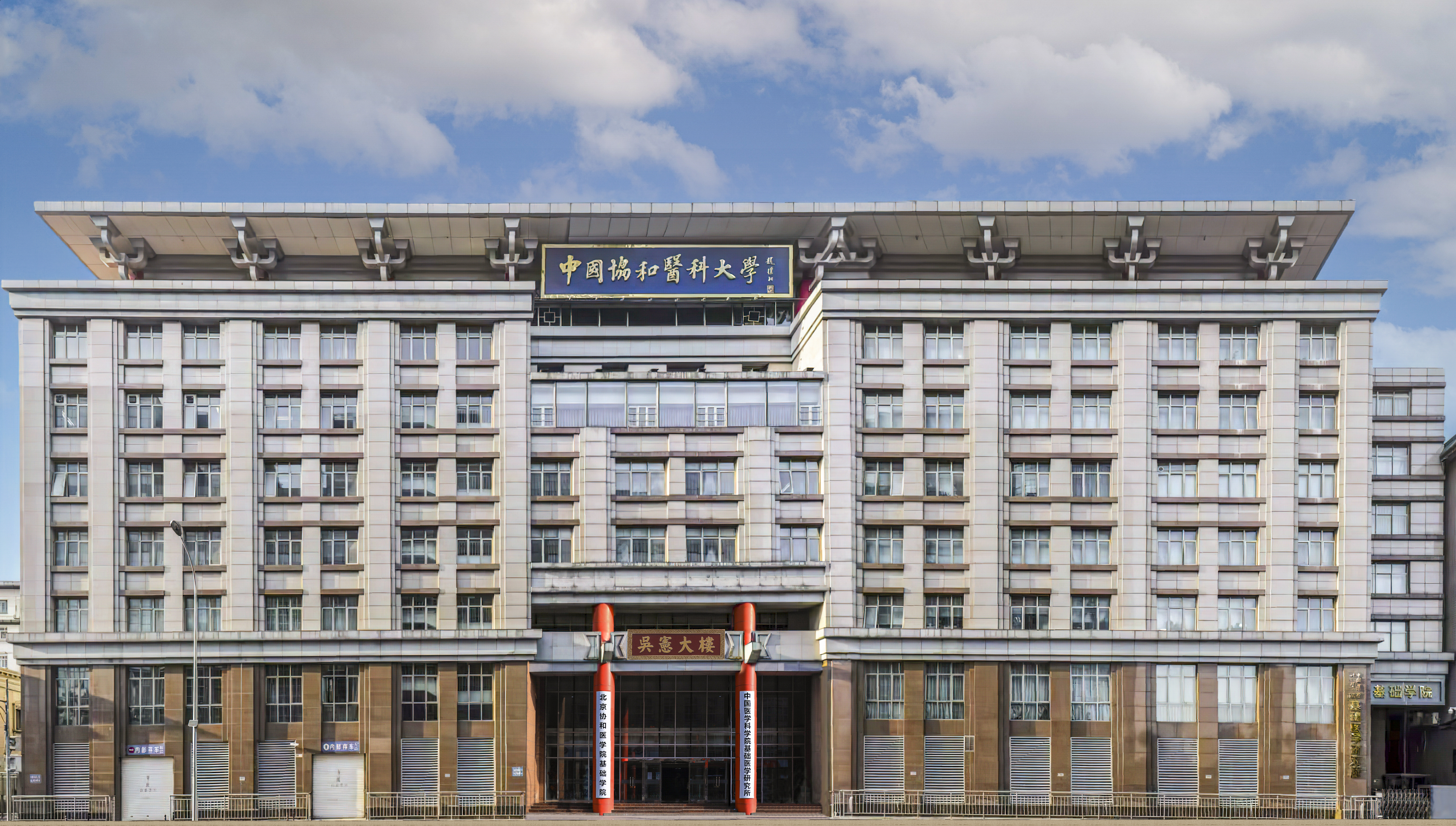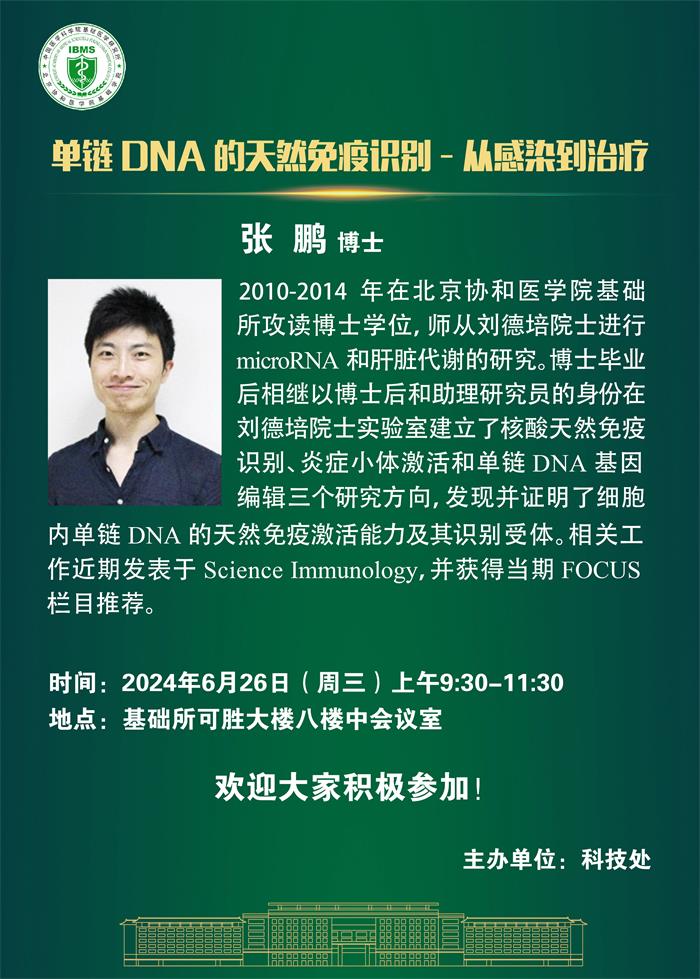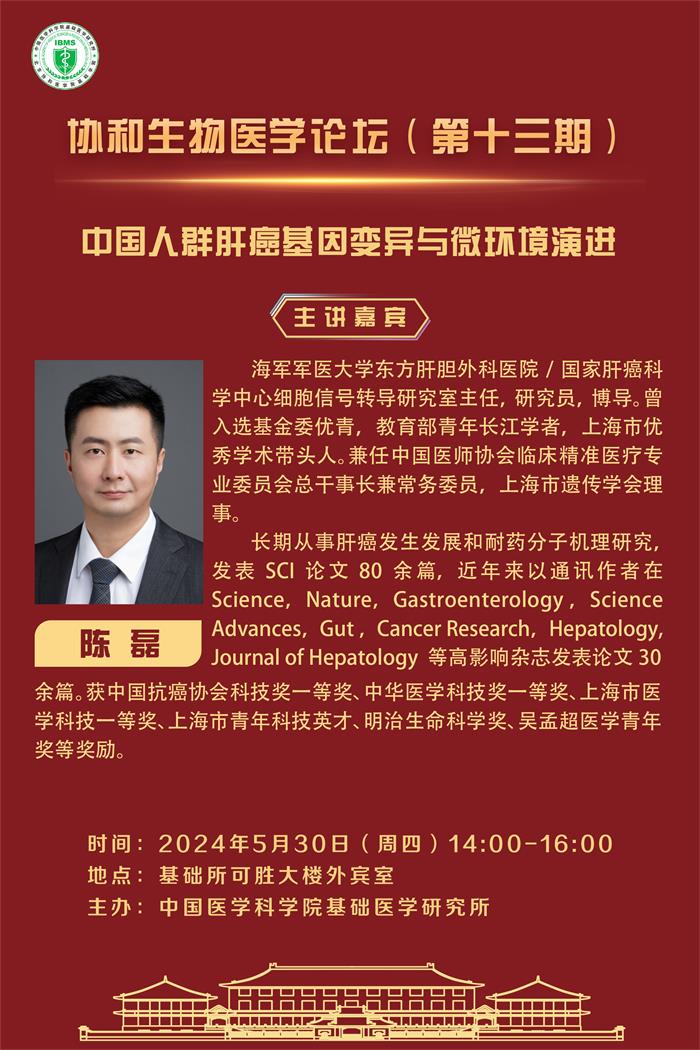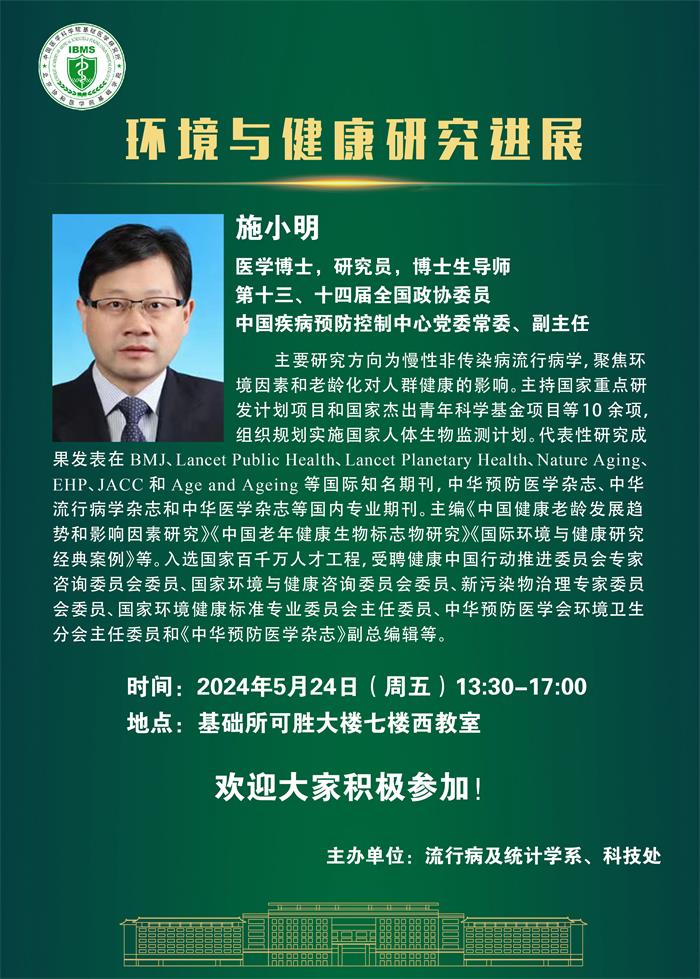A Brief Introduction to the Institute of Basic Medical Sciences
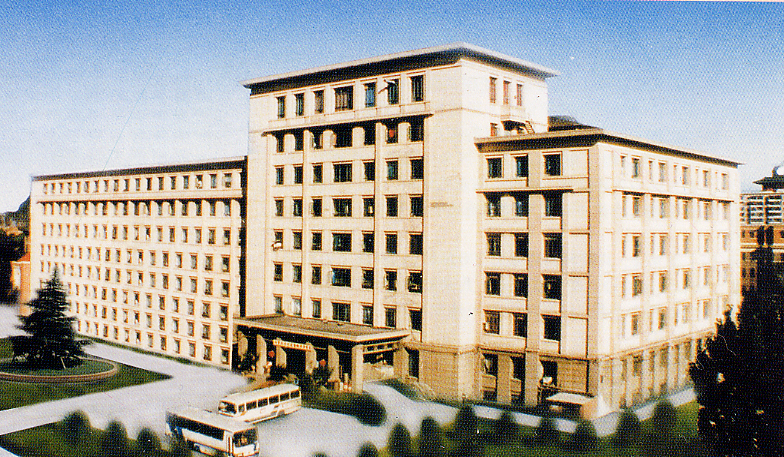

The Institute of Basic Medical Sciences (IBMS) of the Chinese Academy of Medical Sciences (CAMS) was established in 1978, and also serves as the School of Basic Medicine (SBM) of the Peking Union Medical College (PUMC). The IBMS (SBM) was formed by merging the Institute of Experimental Medical Sciences of CAMS (founded in 1958) and the basic medical science departments of PUMC (founded in 1921). Devoted to excellence in both biomedical research and advanced medical education, the IBMS (SBM) now consists of 13 academic departments and a National Key Laboratory of Medical Molecular Biology, Two national biological germplasm and experimental materials repositories: National Biomedical Cell-line Resource Center、National Human Brain Bank for Development and Function, a National Center for Teaching in Basic Medical Sciences, with a faculty of 119 full- or associate professors, includes 2 members of Chinese Academy of Sciences (CAS), 5 members of Chinese Academy of Engineering (CAE), and 13 awardees of “Outstanding Young Scientists” from the National Natural Science Foundation of China.
The scientific research programs at the IBMS are focused on basic and translational medical research, which includes, but not limited to functional genomics, epigenetics, proteomics, molecular immunology, and clinical genetics related to major human diseases. Using the approaches of integrated system biology, our research efforts aim to study diseases from molecular, cellular, tissue, organ, to the whole body system levels, and to provide the scientific basis for novel strategies in the early detection, prevention, and intervention of major diseases in China.
The research projects at the IBMS are sponsored by more than 100 national scientific research funding programs, including National key research and development projects, CAMS Innovation Fund for Medical Sciences ( CIFMS ) , the National Basic Research/Major Scientific Research (973) Program, the National High Technology Research & Development (863) Program, Key Projects in the National Science & Technology Supporting Program, Health industry fund, several major programs sponsored by the National Natural Science Foundation of China, international cooperation project,and the “111 project”sponsored by the Ministry of Education/State Administration of Foreign Experts Affairs. The institute published 107 research papers in 2020, including 77 papers in SCI journals and some leading ones as CELL RESEARCH、Nature Biomedical Engineering、SCIENCE IMMUNOLOGY、Science Advances、Small、Genome Research、EMBO Journal、Cancer Research、Arthritis&Rheumatology、Proc Natl Acad Sci US、Theranostics、Clinical Gastroenterology and Hepatology、British Journal of Pharmacology、Journal of Controlled Release、Environment International、Journal of Experimental & Clinical Cancer Research、Nanoscale、BRAIN BEHAVIOR AND IMMUNITY、Science of the Total Environment、Clinical Nutrition、Cell Death Dis、Biomaterials Science、Cancers、Chemical Communications、Analytica Chimica Acta、Liver International、Stem Cell Research & Therapy 、International Journal of Nanomedicine、Hepatology International、Frontiers in Immunology. Faculties from the IBMS have won numerous scientific awards for its achievements in biomedical research, including one Second Prize of National Natural Science Award, one Second Prize of National Invention Award, two Second Prizes and two Third Prizes of Chinese Medical Science & Technology Award, three First Prizes and one Second Prize of Science and Technology Award for Higher Education, three First Prize and two Second Prize of Beijing Science and Technology Progress Award.
The SBM (IBMS) plays an essential role in medical education at PUMC. As one of the top medical schools in China, PUMC was the first accredited medical school in the country to confer M.D. degree with an 8-year program, as well as Ph.D. M.D./Ph.D., and M.S. degrees. Currently there are 59 Ph.D. advisors and 37 M.S. advisors in the SBM (IBMS), with more than 400 graduate students enrolled. Several post-doctoral training programs in basic medical sciences have been approved by the Ministry of Education (MOE). Biology (including Biochemistry & Molecular Biology, Cell Biology, Genetics, and Biophysics) was recognized as the National first-level key discipline, and Pharmacology, Immunology, and Pathology/Pathophysiology were recognized as the National second level key discipline.
With the support from the Ministry of Science and Technology (MOST), Ministry of Finances (MOF) and National Health Commission (NHC), the IBMS (SMB) has established a series of state-of-the-art research platforms. In 2019, MOST and MOF optimized and readjusted the National Science and Technology Infrastructure (NSTI) and the “National Biomedical Cell-line Resource Center and the "National Human Brain Bank for Development and Function”are based in our Institute among the 30 national biological type and experimental materials resource banks/museums. The next five year plans of the two were expounded and approved by the committee organized by the Department of Health Science, Technology and Education, NHC. The Core Instrument Facility (CIF) is equipped with the most advanced scientific instruments and facilities accredited by the China National Accreditation Board for Laboratories (CNABL) and recognized by the National Laboratory. The Cell Resource Center offers a broad spectrum of cell line products and cell culture services for biomedical research. The newly renovated Experimental Animal Center is a SPF certified animal laboratory equipped with advanced animal research platforms, including small animal imaging system, metabolic experimental system, micro-injection platform, and behavioral study platforms. Recently, the Histopathology Core Facility has been established to promote translational medical research. The IBMS also hosted the Center for Proteomics of Chinese Academy of Medical Sciences, Center of Excellence in Tissue Engineering of Chinese Academy of Medical Sciences, Nanomedicine Center of Chinese Academy of Medical Sciences, McKusick-Zhang Center for Genetic Medicine of Chinese Academy of Sciences, Center for Bioethics of Chinese Academy of Medical Sciences, Neuroscience Center of Chinese Academy of Medical Sciences, Center for Systems Medicine of Chinese Academy of Medical Sciences, Center of medical primate animal of Chinese Academy of Medical Sciences , Immunotherapy Center of Chinese Academy of Medical Sciences,Research Center for Environment and Health of Chinese Academy of Medical Sciences, Research Center on Pediatric Development and Diseases of Chinese Academy of Medical Sciences, Medical Epigenetics Research Center of Chinese Academy of Medical Sciences, Biomedical Big Data Research Center of Chinese Academy of Medical Sciences, and Chinese Burden of Disease Research and Dissemination Center;two key Laboratory of Chinese Academy of Medical Sciences:Key Laboratory of RNA and Hematopoietic Regulation of Chinese Academy of Medical Sciences,Key Laboratory Of T Cell and Immunotherapy of Chinese Academy of Medical Sciences
Due to the efforts of distinguished faculties, the IBMS have established extensive scientific collaborations worldwide. The IBMS also hosted a number of academic associations including the Chinese Society of Immunology (CSI), Chinese Society of Biomedical Engineering (CSBME), Chinese Anatomical Society, Medical Biochemistry Committee of Chinese Society of Biochemistry and Molecular Biology, Beijing Association of Physiological Sciences (BAPS), Chinese Medical Genetics Society,Beijing Society of Biochemistry and Molecular Biology. The Institute (School) co-publishes the journal “Basic and Clinical Medicine” with Peking Union Medical College Hospital (PUMCH).
The IBMS has recently made remarkable progresses in multiple projects involving the research and development of diagnostic assays, genetically engineered drugs, Chinese Traditional Medicine, biomedical polymers, and has established collaboration with more than 20 pharmaceutical companies in China and aboard. The IBMS has successfully applied for 369 patents, among them there are 17 PCT international applications, and 92 patents approved, including 16 abroad authorized invention patents . Currently there is one clinical trials in progress.
The long-term goal of IBMS (SBM) is to become a world-class institute and to achieve excellence in biomedical research and advanced medical education. To accomplish this goal, the Institute (School) has established long-term developmental plans, and implemented a series of initiatives that facilitate innovation, integration, and efficiency. The faculties and staff members are encouraged to participate in institutional management. The Academic Committee, the Education Committee, and the Committee on the Transformation of Scientific and Technological Achievements play active roles in decision making. The IBMS (SBM) will work diligently to achieve our long-term goal with the spirit of “Rigorous, Erudition, Innovation and Dedication”.
